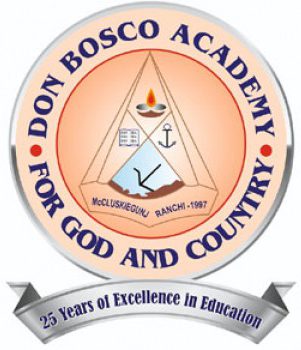
Saint John Bosco
The Patron of this institution is - Saint John Bosco, or, as he is commonly called, "Don Bosco" (the Don meaning Father), was born at Becchi, a town in the foothills of the Italian Alps, on August 16, 1815. Losing his father when he was just 3 years old he grew up in abject poverty and had to face severe hardships and was unable to attend any regular school. As he grew up his own poverty and under privileged position made him increasingly identify with others like him. He decided to become a priest and was ordained as one in 1841. He then dedicated his entire life to the comfort , help, education and up-liftment of poor street urchins - whether in the streets, factories or prisons. John Bosco conceived the-: " Preventive System" of education". He died on 31st January 1888, and was canonized as a Saint on 1st April 1934. His first years of study were filled with difficulties which include supporting himself while attending school. He overcame this problem by working at various trades, all of which he later taught his students. Don Bosco entered the Chieri Seminary and was ordained in 1841. He was stationed in Turin, an industrial centre which attracted young people from neighbouring towns. There he opened an "oratory" or boys club for them. Although he did not hesitate to extend his priestly services to prisons and reformatories, he gradually came to realize that his mission was to prevent youngsters from falling into crime rather then rehabilitate delinquents. Because of this insight, he opened his oratory to all boys. Soon, as many as 1,000 boys flocked to his oratory (which was just an open field and chapel) every Sunday for religious instruction, Mass, sacraments and a full day of fun and games. Kindness, understanding and endless patience brought these boys close to their faith. Realizing that many of them needed continuous help, he enlarged the oratory into a boy's home. There, youngsters could live and either work or attend classes in the city. To prepare boys for skilled labour, Don Bosco turned his mother's kitchen into a makeshift cobbler and carpenter shop. This was the first Catholic trade school in Italy (1835). Leading educators soon came to admire his educative style, which he explained as a happy blend of reason and religion. He strove to establish an atmosphere characterized by a sense of understanding between teacher and pupil and an acknowledgment of life's spiritual aspects. Thus, he not only prevented delinquency but also produced leaders for industry and labour, well-grounded in their faith. Don Bosco's capability to attract numerous children and adult helpers was connected to his "Preventive System of Education". He believed education to be a "matter of the heart," and said that the children must not only be loved, but know that they are loved. He also pointed to three components of the Preventive System: Reason, Religion, and Kindness. Music and games also went into the mix. The essence of this system being to prevent young people from going astray or doing wrong by ensuring the constant presence of the educator in their lives and sharing their joys and sorrows. For St John Bosco education meant a fine blend of excellence in learning and involvement in extra-curricular activities as well. He felt that learning was most productive if a - "Family Spirit" prevailed between the educator and the taught. To the youth of his time he had these words to say: “For you I study, for you I work, for you I live, for you I am ready even to give my life. "(St. John Bosco). Don Bosco Academy, McCluskiegunj, Ranchi has since its inception in 1997 being following St. John Bosco's mission and has been educating children irrespective of caste, creed. location, economic status, religion or gender.

